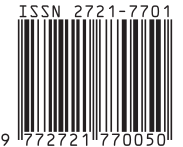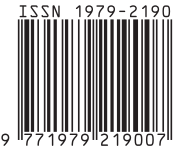Uji Efektivitas Konsentrasi Spodoptera litura – Nuclear Polyhedrosis Virus (SlNPV) JTM 97C Formulasi Bubuk Terhadap Larva Spodoptera litura Fabricius (Lepidoptera: Noctuidae) Pada Tanaman Kedelai
Abstract
Spodoptera litura (armyworm) is an important leaf pest that is polyphagic and has a broad range of hosts. Spodoptera litura is the main pest in soybean plants and can cause up to 50% damage and often results in decreased productivity and even crop failure. Spodoptera litura is widespread in areas with hot and humid climates from the subtropics to the tropics. S. litura pests attack cultivation plants in the vegetative and generative phases. The prospect of insect pathogens as a substitute for chemical insecticides is quite good in terms of their effectiveness and impact on the environment. Nuclear Polyhedrosis Virus (NPV) is one of the Baculoviridae viruses that infect the larval stage. Spodoptera litura Nuclear Polyhedrosis Virus (SlNPV) is a pathogenic virus that infects armyworms. SlNPV JTM 97C is an effective isolate in controlling larvae of Spodoptera litura. The larvae used in this study were larval instar 4, instar 5, and instar 6. The study was conducted using a Completely Randomized Design (CRD) with 6 treatments and 3 replications. The treatments consisted of controls, 1 g / l, 2g / l, 3 g / l, 4 g / l, and 5 g / l. Each treatment was applied to instar 4, instar 5 and 6 instar larvae. The results showed that SlNPV JTM 97C affected mortality, stopped eating and pupa formation of instar 4, instar 5 larvae, but did not affect instar 6 larvae. The younger the larval instar the higher the pathogenicity response.
- Authors retain copyright and grant the journal right of first publication with the work simultaneously licensed under a Creative Commons Attribution License that allows others to share the work with an acknowledgement of the work's authorship and initial publication in this journal.
- Authors are able to enter into separate, additional contractual arrangements for the non-exclusive distribution of the journal's published version of the work (e.g., post it to an institutional repository or publish it in a book), with an acknowledgement of its initial publication in this journal.
- Authors are permitted and encouraged to post their work online (e.g., in institutional repositories or on their website) prior to and during the submission process, as it can lead to productive exchanges, as well as earlier and greater citation of published work.







